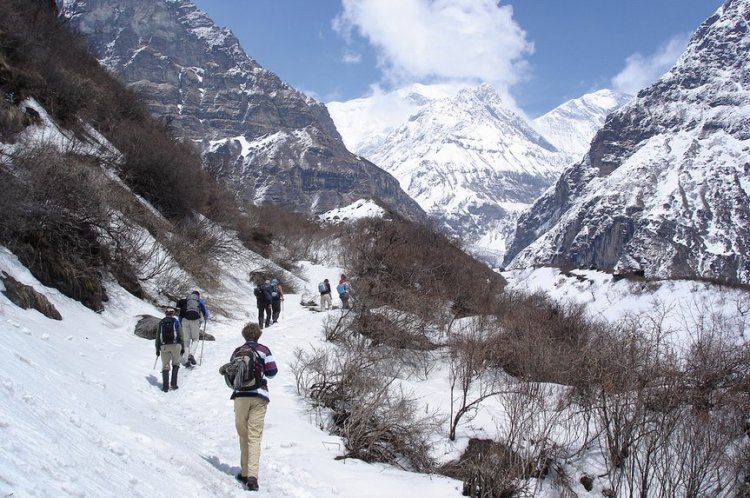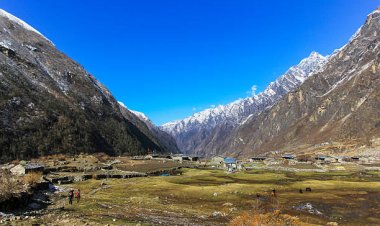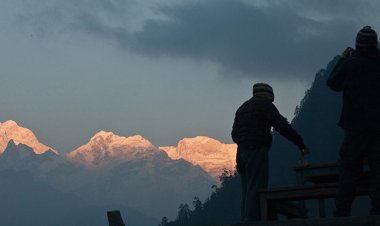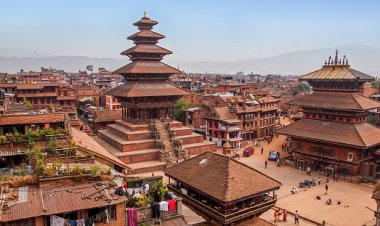Every thing that you must know before travelling to Nepal - Essential Safety , Advice and Travel Tips
Discover valuable safety and travel tips for your journey through Nepal. Learn about local customs, safety precautions, health and hygiene practices, transportation tips, and more. Plan your trip wisely and ensure a safe and memorable experience in Nepal.

Introduction
Nepal, a country known for its breathtaking landscapes and rich cultural heritage, attracts travelers from around the world. While Nepal offers incredible experiences, it's important to prioritize safety during your visit. This article provides valuable safety and travel tips to ensure a smooth and enjoyable journey through Nepal.
1. Research and Planning:
Before traveling to Nepal, thorough research and careful planning are essential:
- Understand the local customs, traditions, and cultural norms.
- Research the weather conditions and pack accordingly.
- Check visa requirements and ensure your passport is valid for at least six months beyond your intended stay.
- Familiarize yourself with popular tourist destinations and attractions.
2. Safety Precautions:
To ensure your safety while traveling in Nepal, consider the following precautions:
- Register with your embassy or consulate upon arrival.
- Share your itinerary and contact details with a trusted person back home.
- Avoid displaying valuable items or excessive amounts of cash.
- Be cautious in crowded places to prevent pickpocketing.
- Stay in well-lit areas and trusted accommodations.
3. Health and Hygiene:
To maintain good health and hygiene during your trip to Nepal:
- Consult with a healthcare professional regarding necessary vaccinations.
- Drink bottled or purified water to avoid waterborne diseases.
- Practice proper hand hygiene by washing hands frequently or using hand sanitizer.
- Carry a basic first aid kit with essential medications.
4. Respecting Local Customs and Culture
To respect the local customs and culture of Nepal:
- Dress modestly, especially when visiting religious sites.
- Remove your shoes before entering temples, monasteries, or private homes.
- Seek permission before taking photographs of people, religious sites, or ceremonies.
- Use your right hand for giving and receiving objects, as the left hand is considered unclean.
5. Transportation and Navigation:
To ensure safe transportation and navigation within Nepal:
- Use registered taxis or reputable transportation services.
- Negotiate fares before boarding a taxi or hiring a vehicle.
- Be cautious when crossing roads, as traffic can be chaotic.
- Use reliable navigation apps or carry a local map for guidance.
6. Outdoor Activities and Trekking:
If you plan to engage in outdoor activities or trekking in Nepal, keep these tips in mind:
- Choose reputable trekking agencies with experienced guides.
- Acclimatize properly at higher altitudes to avoid altitude sickness.
- Pack appropriate clothing and gear for the trekking conditions.
- Follow the instructions and guidelines of your trekking guide.
7. Solo Travel Tips:
For solo travelers in Nepal, consider the following tips:
- Inform someone about your daily itinerary and expected return time.
- Stay in well-populated areas and trusted accommodations.
- Avoid isolated or poorly lit areas, especially at night.
- Trust your instincts and be cautious when interacting with strangers.
8. Communication and Connectivity:
To stay connected and communicates effectively while in Nepal:
- Purchase a local SIM card for affordable and convenient communication.
- Familiarize yourself with emergency contact numbers.
- Learn basic greetings and phrases in Nepali for easier communication with locals.
9. Money and Currency
Manage your money and currency in Nepal with these tips:
- Carry a mix of cash and cards for different situations.
- Exchange currency at authorized money exchange counters or banks.
- Inform your bank about your travel plans to avoid any issues with card transactions.
- Keep small denominations for daily expenses and tips.
10. Emergency Preparedness:
To be prepared for emergencies while traveling in Nepal:
- Keep a copy of your passport, travel insurance, and important contact numbers in a safe place.
- Research the location of the nearest hospital or medical facility.
- Familiarize yourself with emergency evacuation procedures in case of natural disasters or emergencies.
Some other things to pack:
-
Clothing and Footwear:
Packing appropriate clothing is crucial to handle Nepal's varying weather conditions. Consider the following items:
- Lightweight and breathable clothing for warmer regions
- Layered clothing for cooler regions and higher altitudes
- Waterproof and windproof jacket
- Sturdy hiking boots or trekking shoes
- Comfortable walking shoes or sandals for daily use
- Hat or cap for sun protection
- Warm hat and gloves for colder regions or high-altitude treks
-
Weather-Specific Gear:
Depending on the time of your visit and planned activities, consider the following weather-specific gear:
- Warm thermal layers for winter months or high-altitude treks
- Rain jacket and waterproof pants for monsoon season
- Sunscreen with a high SPF rating
- Sunglasses with UV protection
- Insect repellent for outdoor activities
- Microfiber towel for quick drying
-
Personal Hygiene and Medications:
Pack the following personal hygiene items and medications to ensure a comfortable trip:
- Toiletries (toothbrush, toothpaste, shampoo, soap, etc.)
- Prescription medications and a small first aid kit
- Hand sanitizer and wet wipes
- Basic over-the-counter medications (pain relievers, anti-diarrheal, etc.)
- Reusable water bottles and water purification tablets or filter
-
Electronics and Communication:
Stay connected and capture memories with the following electronics:
- Smartphone or camera for capturing photos and videos
- Portable power bank for charging devices on the go
- Universal power adapter for charging electronics
- Headphones for entertainment during long journeys
-
Travel Accessories:
Pack these essential travel accessories for added convenience:
- Lightweight daypack for day trips and hikes
- Money belt or pouch for storing valuables
- Travel pillow and eye mask for long flights or bus rides
- Travel locks for securing your luggage
- Portable umbrella or rain poncho
Conclusion:
By following these safety and travel tips, you can ensure a safe and memorable journey through Nepal. Respecting local customs, prioritizing personal safety, and staying prepared for emergencies will contribute to a positive travel experience. Enjoy the natural beauty, cultural heritage, and warm hospitality that Nepal has to offer.
Frequently Asked Questions (FAQs)
-
Is Nepal safe for travelers?
Yes, Nepal is generally safe for travelers. However, it's important to take common-sense precautions, be aware of your surroundings, and follow local laws and customs. -
Do I need travel insurance for Nepal?
Travel insurance is highly recommended when visiting Nepal. It provides coverage for medical emergencies, trip cancellations, and unforeseen events. -
Are vaccinations required before traveling to Nepal?
It is advisable to consult with a healthcare professional regarding recommended vaccinations for Nepal. Common vaccinations include those for hepatitis A and B, typhoid, and tetanus. -
Can I drink tap water in Nepal?
It is generally recommended to drink bottled or purified water in Nepal to avoid waterborne diseases. You can find bottled water readily available in most places. -
Are there any specific customs or cultural practices I should be aware of in Nepal?
Yes, Nepal has unique customs and cultural practices. It is important to dress modestly, remove your shoes before entering religious sites or homes, and show respect for local traditions and beliefs.
What's Your Reaction?








































































































